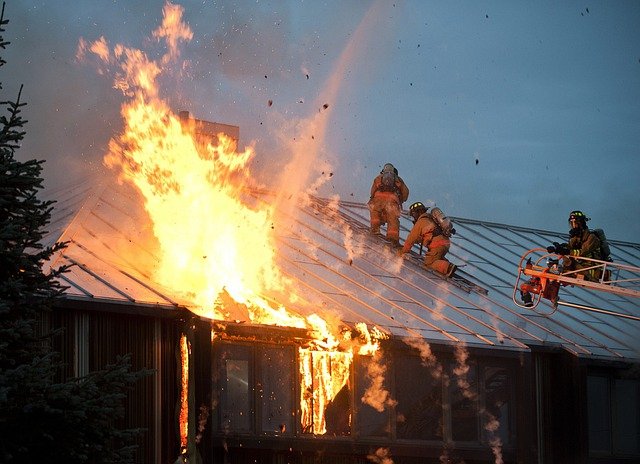In the last year or so there has been heightened interest in news about fires at food processing and oil refining facilities and for good reason. Food and fossil fuels are the two most important things people need in order to live and prosper. When fires occur at places that produce them, fears of intentional attacks may not be rational but, in many ways, are reasonable. Some blazes at infrastructure facilities over the past week of note are:
Last Tuesday, a fire broke out at a British Petroleum refinery in Oregon:
On Thursday, a fire occurred at an oil refinery in Argentina:
Last, but certainly not least, a fire ensued today at Rungis, Paris’s largest fresh produce market:
Though this is not the first time Paris’s produce market has experienced fire outbreaks, fortunately, today’s Rungis fire was contained quickly and no injuries were reported at any of these blazes. The National Fire Protection Association (NFPA) has a very interesting report of compiled statistics of structure fires in U.S.-based warehouse properties and their latest manuscript issued this year covers a 14 year period (2006-2020).
On page 2 of the report, the NFPA notes that there were more warehouse structure fires in 1980 (4700) as opposed to 2020 (1400). Even though there’s been an uptick in warehouse blazes since 2008, the fires during 2020 were slightly down. On page 4, the NFPA report states that well over half of the causes of the structure fires were unintentional in which the majority of them were due to faulty electrical distribution, and heating along with cooking equipment were also contributing factors.
Though the NFPA study only has statistics up until 2020, it would be interesting if any other data sets exist or are compiled that cover 2020 to 2022 including if statistics show there has been a significant increase in fire outbreaks at said outfits (including oil refineries) during this two year period. Additionally, with the understandable concerns raised by news outlets, like Fox News, about fire outbreaks at food processing plants, the NFPA published an article during May saying they aren’t convinced that the food plant blazes are intentional and the group also reveals the most likely cause of fire outbreaks at oil production plants are electrical sparks.
These are interesting times and suspicion is certainly warranted since environmentalist groups are known to conduct acts of sabotage and terrorism at places (like oil and food manufacturing) that conduct activities they’ve sworn to end because they go against their leftist utopian vision. So far, there is no evidence of any fires at food or fuel production plants being intentionally set, nor have any organizations or people having claimed responsibility.
Image by David Mark from Pixabay
